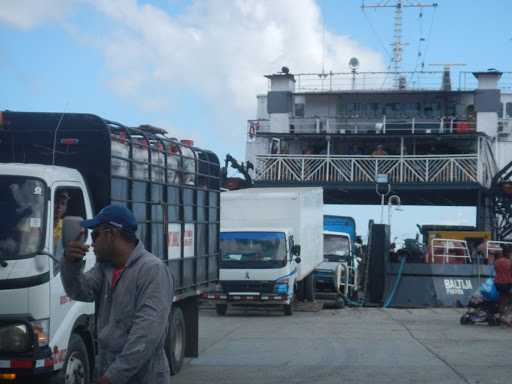A Model For The Planet?
by Gary Stamper, CPC, MISP, DSPS
 |
| See link below for recipe... Mmmmm! |
As a child, I pretty much ate anything except Brussel Sprouts. As far as I was concerned, they tasted like dirt.
It wasn't until my 60's that I learned it wasn't the Brussel Sprouts - it was the fact that they and the water they came in were simply dumped in a pan and heated on the stove and served up as they were - little green dirt balls.
My conversion came when my partner Anyaa introduced me to Grandma’s Iron Skillet Roasted Brussel Sprouts and they surprisingly became my favorite cruciferous green.
Where am I going with this? I can't get brussel sprouts or artichokes (also a favorite although I can get canned or seasoned artichoke hearts in water or oil) in Bocas. Not the same as a steaming hot artichoke globe.
Artichokes need "chilling," full sun and well-draining soil and with 145" of annual rain in Panama, they would be challenging to say the least.
Anything that can't be grown here (unlike bananas, plantains, pineapples, various roots like Yuca (prounounced "chooka" and not to be confused with yucca) and a few other exotic edibles, has to be shipped in (we're on an island, remember?).
Because we're close to the Equator, we don't get the chill period that brussels sprouts (or parsnips or horseradish) need to develop their special flavors.
Not only are we on the largest of 9 major islands in the Bocas Del Toro archipelago, but we are also the last stop for products being shipped here. Anything leftover in the shipping process winds up being a loss, so planning becomes the art of the shortage.
 |
| This week's Bocas Veggies |
The same thing happens with avocados, especially since they became a recognized superfood. With the huge rise in their popularity, corporate agri-business and investment markets took over their distribution and there are now shortages. Rarely does a week go by that there aren't days that avocados are just not available in Bocas.
It takes so long for avocados to get here, that what does make it here has to be eaten quickly as they are already soft.
In addition to steeply rising demand, droughts in California and Central America, and Cartels in Mexico and South America, prices are also rising dramatically and water is even being diverted from people to have enough water for thirsty avocados.
If there's good news, it's that here is that avocados, particularly the Panamanian Hass variety, is ideally suited for cultivation in Panama. The bad news is that Panama exports nearly all of its avocados. I've got one plant going and three more germinating, but who am I kidding? It can take 5-13 years for an avocado plant to grow fruit from a seed.
But what about brussel sprouts and artichokes?
Brussel sprouts can easily be frozen, packaged, and shipped, even though they're not, so I'm left with thinking that the absence of brussel sprouts is cultural and the fact that there's just not enough demand.
Whole artichokes, on the other hand, cannot be frozen, and must be shipped requiring particular temperature, humidity/moisture and ventilation conditions. Attention must also be paid to proper crating and securing in such a way that they are prevented from damaging each other.
Distance is also a factor as Italy and Egypt are the world's largest artichoke producers with the US #9, Mexico #18, and Costa Rica #29 seriously following. Panama's not even the top 30.
Any true artichoke aficionado knows that artichokes should be eaten within a day or two of purchase and that leaving them on the counter for just 2 days produces hardening and shrinking.
 |
| The imported food arrives at the dock |
But the biggest problem with food in Bocas is the fact that we're the last stop on the supply chain for food and everything else that has to be shipped in. That's exacerbated by the fact that we really don't produce anything. We're a tourist town and that can't be exported, so when supplies are brought in, the costs can't be mitigated by what's going out and so shipping costs are high.
It isn't just avocados, brussel sprouts, and artichokes, though.
For instance, my dairy is personally pretty much limited to butter and feta cheese. I use plant-based cheese and milk substitutes whenever I can (thanks to Super Gourmet, the only ex-pat owned food store in town). But even that's limited, and organic products are rare. I prefer oat milk because of its health aspects and consistency but it hasn't been available here for a few weeks and no one knows when - or if - it might be available again.
 |
| Super Gourmet, ex-pat owned |
On the plus side, frozen wild-caught Pacific Salmon has suddenly appeared in some of the local stores. Up until now, the only available salmon has been "Atlantic raised" - read Omega-6 laden and diseased farm-raised - salmon that I will not eat. I am stocking up on the new salmon while it's still available.
Ultimately, if food shortages become the norm - which is already happening around the world due to climate change along with the accompanying population migrations that we're already seeing aroung the globe - this problem will continue to get worse.
And it won't just be us.
What I've noticed here in all of the grocery stores is that they get - and offer - what's available to them - and it's constantly shifting. Part of that is because we're at "the end of the supply chain" road.
And when it comes down to it, we'll eat what's put in front of us, and, worst-case scenario, if there's nothing, we'll move or die.
Just like the refugees from Guatemala and Nicaragua who are fleeing drought and violence to the U.S. southern borders.
For them, it's already move or die.

No comments:
Post a Comment